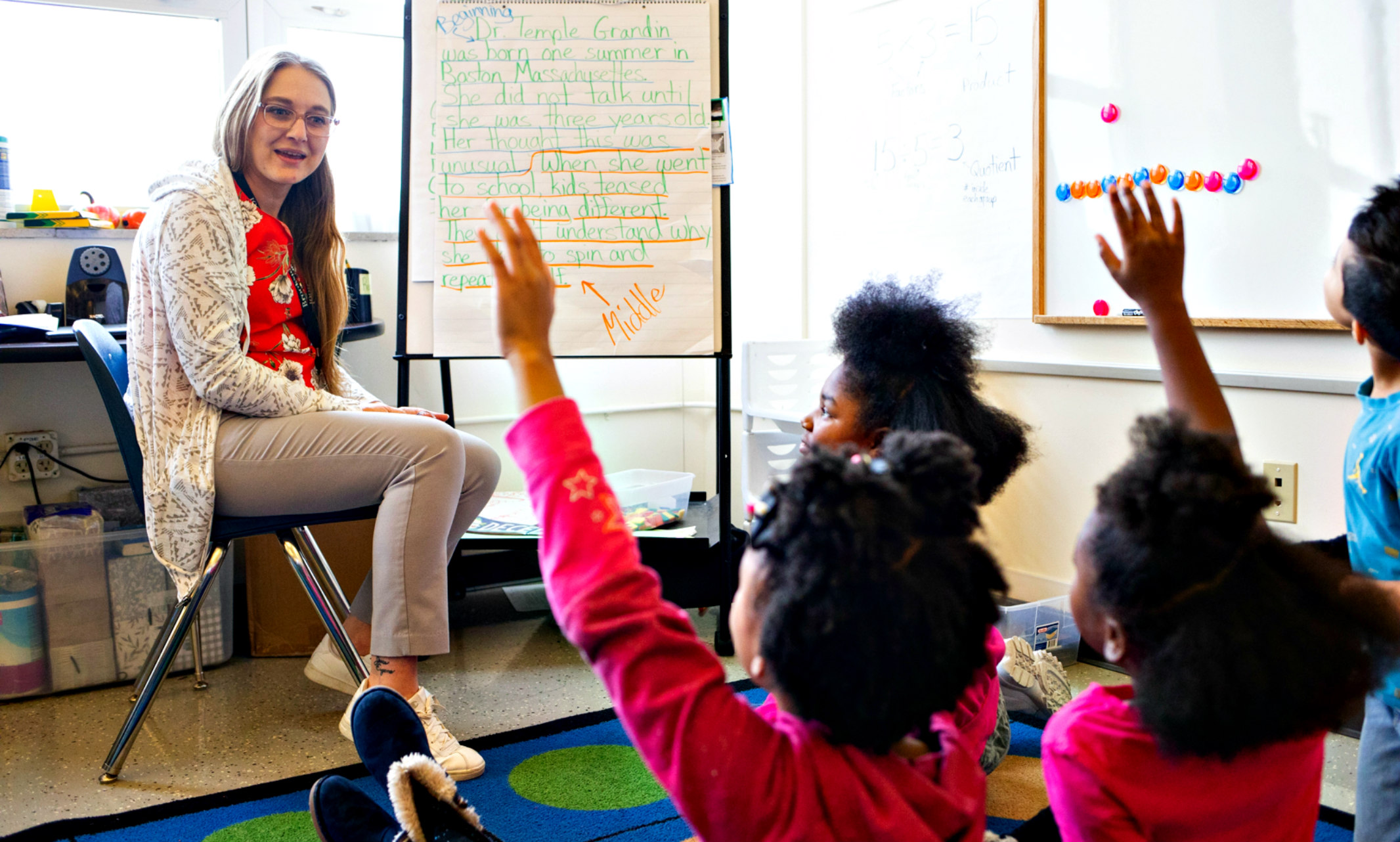In the current racial climate and unrest facing America today, and as schools continue to explore how classrooms will be structured post-COVID-19, Jennifer Waddell, director of the UMKC School of Education’s Institute for Urban Education, said the preparation of teachers has become increasingly critical in uplifting our society and promoting educational equity and justice.
“Racism and oppression are both learned and practiced throughout societal institutions, including schools and, in particular, through the socialization of children and youth,” Waddell said in a statement following the recent deaths of black men and women due to racism and systemic injustice. “Teachers help children and youth interpret, make sense of, and view the world around them. Therefore, it is critical that they understand the power they yield, as well as, their influence and the importance of implementing a culturally responsive and anti-racist curriculum. It is also our duty as educators to identify and eradicate racist policies and practices within educational systems and communities.
Institute for Urban Education faculty and staff shared their thoughts on how teachers can do their part to develop inclusive classroom curricula and ensure their classrooms are a safe space for black students.
"It's important to understand yourself first," said associate director Bradley Poos. "It's more than just reading books; you have to be willing to do self-examination and allow yourself to be vulnerable and recognize your unconscious biases."

Poos said that while the institute trains teachers to foster inclusive classroom environments, they are also committed to increasing the number of students of color who want to be teachers.
“Teachers are trained to be the expert voice in the classroom and focus on the curriculum on the shelf, but there’s a need to engage the curriculum of self.”
“Studies show that students who have a teacher that looks like them at an early age are 17% more likely to go to college,” Poos said. “The percentage of likelihood increases to 35% if they have two. That’s why we ensure we're able to recruit and retain teachers of color.”
At the Institute for Urban Education, faculty and staff view education as a form of social justice. There is only 5 percent of teachers of color statewide in Kansas and Missouri and, according to Poos, that’s not unintentional.
“Black teachers were pushed out after the Brown vs. Board of Education decision and we haven’t recovered,” he said. “When we integrated schools, we accounted for students, but we didn’t account for teachers. We’re making a push to help undo that.”

“Studies show that students who have a teacher that looks like them at an early age are 17% more likely to go to college.”
Program coordinator Jennifer Fergerson said that one reason oppression continues to be so prevalent is that we haven’t learned how to listen to one another. Learning to listen and engage in discourse starts in school.
“Teachers are trained to be the expert voice in the classroom and focus on the curriculum on the shelf, but there’s a need to engage the curriculum of self,” Fergerson said.
She said teachers have to create student voice in the classroom, especially in areas like social studies and literature. It’s up to teachers to ensure they use supplemental material to ensure multiple voices are presented and give students the opportunity to analyze from different perspectives.
“Students are the experts on their identities and their lives,” Ferguson said. “They should be a part of setting norms in the classroom. They want to learn, and they want respect.”
Institute for Urban Education staff suggests:
- Incorporating room meetings to give students an opportunity to share and be a part of creating classroom norms
- Implementing an 80/20 rule – 80% student and 20% teacher – to ensure teachers are doing more listening and moderating discussion among students, allowing them to learn from one another and give voice to necessary conversations
- One-on-one conferences with students to check in on their success and build relationships,
- Studying and really getting to know students’ names
- Building authentic relationships with students’ families, letting them see teachers as human
Waddell said this work isn’t just for teachers in schools with predominantly black student bodies; predominantly white schools need to do this work as well – in some ways, more importantly.
“Teachers help children and youth interpret, make sense of, and view the world around them. Therefore, it is critical that they understand the power they yield, as well as, their influence and the importance of implementing a culturally responsive and anti-racist curriculum."
The Institute for Urban Education plans to continue doing its part by fostering important conversations with its future teachers, its partners and the community. This fall, the institute is launching its Grow-Your-Own program, a teacher pipeline program for future Institute for Urban Education students and teachers in local K-12 schools. Its goal is to recruit more teachers of color, especially males, who view education as a social-justice profession and want to remain in Kansas City to pursue their careers.
Beginning July 8, the institute will host a free weekly webinar series, Voices in Education, to share resources with local teachers and continue the conversation surrounding the need for diversity, equity and inclusion in education.
Classes will take place at 1 p.m. each Wednesday and cover topics like anti-racist classroom practices, promoting student voices, tech tools for the classroom and remote learning and more. Follow the UMKC School of Education on social media for upcoming registration details.
The mission of UMKC School of Education’s Institute for Urban Education is to prepare and support exemplary teachers for richly diverse schools in Kansas City.

